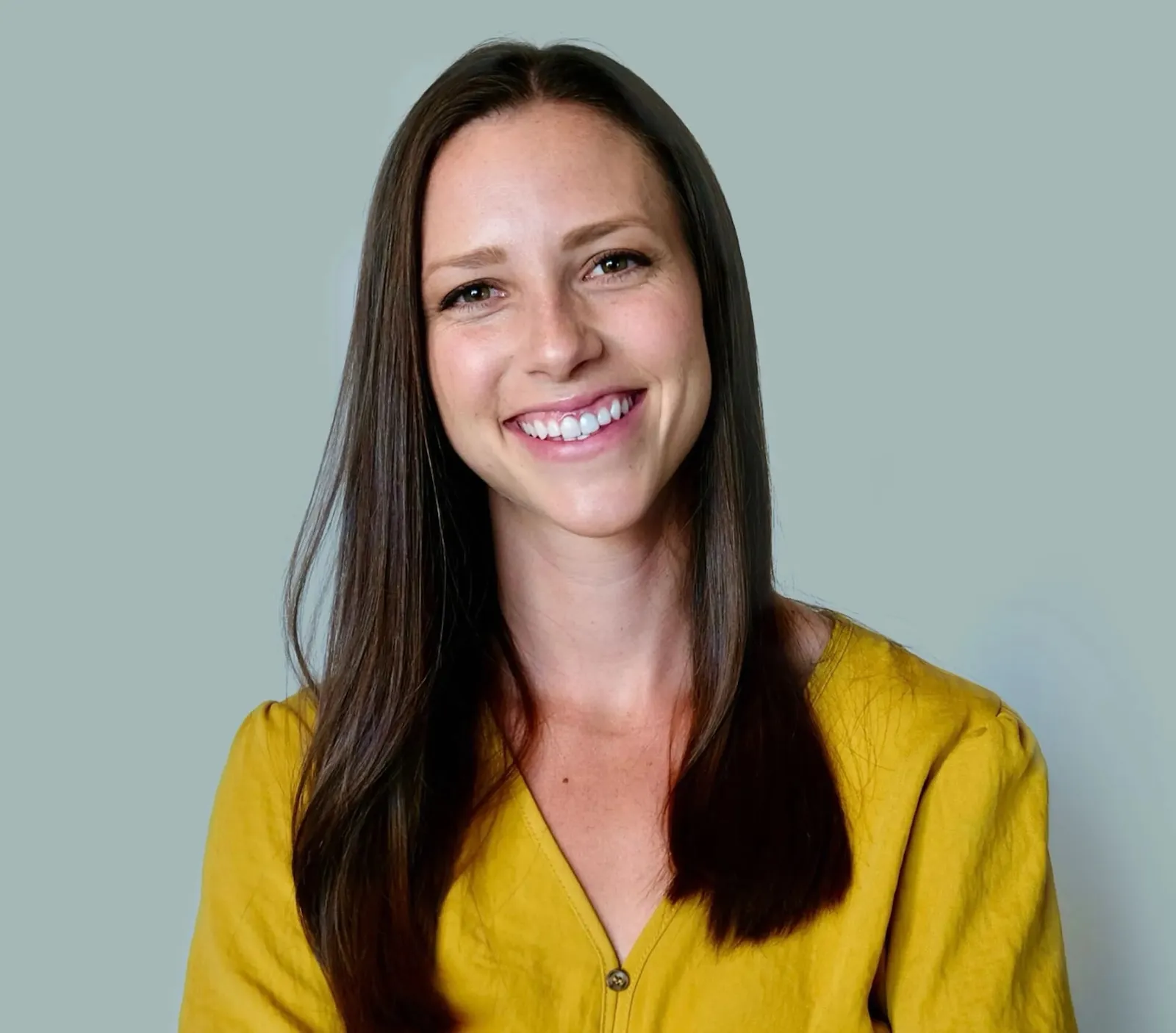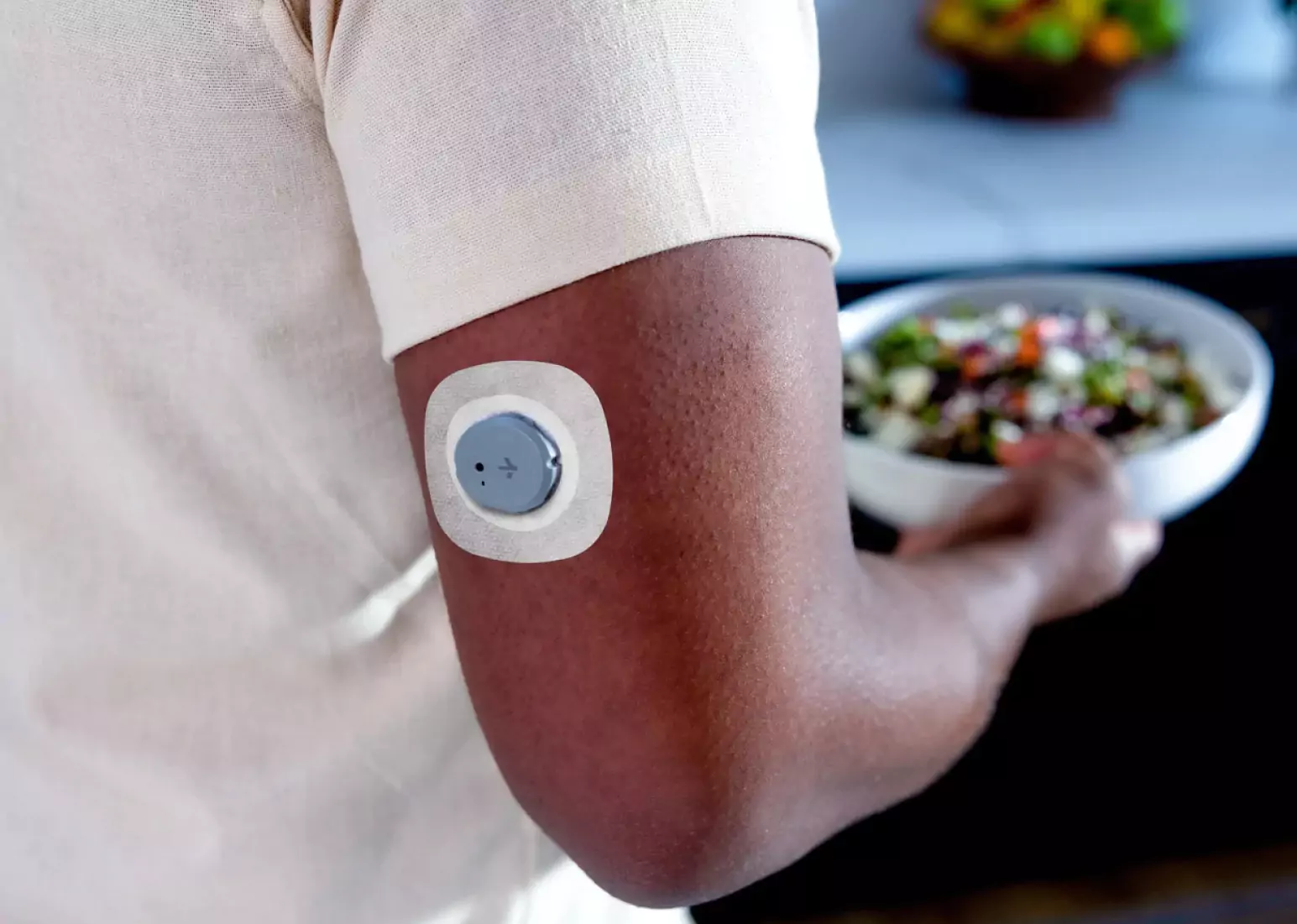Final Results. Logan Speaks with Carlee (The Nutritionist) About His Time With Nutrisense

Key Takeaways
Join me on my weight loss journey by becoming a Nutrisense member and save $25 today by clicking this link: https://nutrisense.io?code=LOGANF.
Logan [00:00:00] Well, hey, Carly, thank you very much for joining me today. It's been quite an adventure. The last three months or 12 weeks on Nutrisense, I've learned a ton, but I just wanted to gather with you and talk about my experience a little bit. And on top of that, what you've seen with my journey from your perspective. How do you think that I did?
Carlee [00:00:20] Awesome. Well, first of all, thank you so much for having me. It's been—I cannot believe it's been three months already. It's been really fun working with you. I think you've done really, really well. And so, looking over your data and kind of all of the things that you've established in your lifestyle habits these past three months, it's actually really cool to see. So you came kind of with that goal of supporting weight loss and really finding a diet or just meals in general that work really well for you. And I think we've done a pretty good job of establishing, kind of achieving, that goal. There were definitely some barriers and some things that kind of threw us for a loop along the process. But that's part of any journey with health, right? And I think the big thing is that you were able to overcome those barriers and we were able to address and think of ways and strategies to address those if they were to happen in the future. But it seems like a lot of the habits we've developed are kind of just staples in your lifestyle now. And that's what I think of when I think of success with any goal.
Logan [00:01:19] I agree. I think that there are definitely some weeks that were harder than others. The week where I moved and the weeks afterwards where I didn't have a kitchen, or any time that I saw friends and family. But I think one of my biggest takeaways that I've had so far is the fact that even if I have like a week where I don't do as well as I wanted to, I still got back on my normal schedule and the schedule didn't really matter as long as I was keeping in mind: "now, should I eat this? Should I go walk after I eat and anything else that I learned during the process?" I think that at this point I can get through anything. I even can go on vacation now and not have too much of an issue without having a kitchen or a firm schedule that I'm on.
Carlee [00:01:59] Exactly. And there's so many times where I feel like people think that they have to do these fad or really, really restrictive diets, and those might work for a short amount of time. But as soon as you go back to "normal life," right, because we all know that those are not sustainable forever, then whatever progress you achieved when you were on that strict diet is going to come directly off or you're going to be right back where you started and you avoided that at all costs. So we were able to, you know, when you had a barrier like your move, we were able to pivot a little bit and see that big picture like, OK, things might be off right now, but here are some things we can do in the meantime. And then we'll get back on kind of your normal habits when your life gets back to a normal place. And that is the mark of a sustainable health plan, and that's the mark of continued health throughout the lifespan. So like you had mentioned, we found that there's a couple of things that really, really helped keep your glucose and your weight in a great place. One of those was timing your meals or your carbohydrates for earlier in the day and when your schedule was off, that might have been a little bit more difficult. We didn't stress about it. We didn't say, "Oh, well, if you can do this, there's nothing you can do." We were able to identify that OK might not be able to do that right now, but maybe we can go for a walk after your meal instead. So those little things, those little kind of ways to incorporate healthy habits no matter what is what I think is going to be successful for you in the long run.
Logan [00:03:16] Yeah, I agree. I've been on plenty of diets in my lifetime and weight is something that I've struggled with and almost every diet I've been on has been pretty strict. And the problem with that is after a month or two months, I hate it and I'm like, "Oh, I'm going to eat a cheat meal." And that's never just one. I go out and I'm like, "I'm going to have a milkshake and a cheeseburger." And then it's like two weeks of just me eating the most terrible food as I possibly can because I'm sick and tired of being on a diet. I haven't had that here. I haven't had the, you know, I've eaten things that I probably shouldn't have here and there. But it's not like I've gone down that hole of just eating terrible food because I want to. I'm consistently thinking about what I eat, when I should eat it. And yeah, I feel better than I have in years. So, I'm still trying to get down to my goal weight of two hundred. But I'm close to losing 20 pounds in this so far in three months, which is pretty good. And yeah, I'm really happy to see where it goes from here.
Carlee [00:04:13] Yeah! One thing that I thought was cool, for example, kind of to go on your point, you had a really high like longer glucose spike to a burrito when you had it at night. But then we were able to shift and have it midday and you had a really good response. So I think sometimes and I guess you can kind of let me know, did that help you feel like you weren't as restricted or that you could have your favorite foods, but there was just a better way to do those? Or there was a small hack or a small change in which you could really enjoy those foods and not have to cut them out and then have them as a cheat day later.
Logan [00:04:39] Yeah, exactly. So like the burrito thing was one good example. Another one is I really like chicken noodles, which I've eaten a lot. The great thing is, I've known, eat it earlier in the day or take my dog for a walk before or after pretty much solves a lot of the issues that I was having beforehand. I work at my desk nonstop and getting up and moving has definitely helped keep things in line. So, yeah, learning little tips and tricks has given me the ability to eat the things that I wanted and want to eat, which is fantastic. You know, I'm not going to eat those all the time. I need hopefully healthier meals than that, but I still can't eat the things that I want to eat when I choose to eat them. So that's fantastic. It's a lot easier to stay on if you're allowed to eat the things that you like eating versus not.
Carlee [00:05:21] Exactly. I mean, I always say that your diet should be 80 percent, you know, good nurturing foods for you, but 20 percent of that needs to be something fun, something that you really enjoy eating and trying to kind of merge those two is the way that you can continue that forever. So I love to hear that. Did you feel like seeing the data... Because one other thing with weight loss right is the scale can be really slow to move. So sometimes that's a really frustrating metric to monitor, right? You're doing all the right things but the scale, maybe only moved a pound or didn't move at all, or even if it went up. I think sometimes that can be really frustrating and you can wonder why you're doing all this hard work at all versus seeing it on your phone right in real-time when you're making a good decision or a bad decision and kind of having that reinforcement at the time that you're doing it. I think that can be really helpful. Did you find that in your own journey?
Logan [00:06:07] Yeah, I did. It almost seemed like a game to me at this point where I eat something. I want to figure out how things, how it's going to affect my glucose, and then I look at it over the two-hour period, three-hour periods and see. So yeah, I mean, I forgot what the number is, but like people look at their phones all the time. A majority of the time I was calling my phone out to look at my glucose, to see what it is. I would scan it like every 30 minutes after I ate just to see like, "Oh, did I mess up or did I eat what I'm supposed to?" And like, it seems like that could be stressful, but it's not because it gives me the knowledge of what I can and cannot eat. And then I know that there's certain foods after that point that I'm like, "This does well with me at this time," and I'm good with that and I don't have to worry about it anymore. So I think it did really help me. And also the gamification of being able to see that data almost instantaneously really had me hooked on, you know, continuously scanning. And on top of that, figuring out what food is best for me.
Carlee [00:07:02] You're not competitive at all with yourself, are you Logan [laughs]?
Logan [00:07:06] Just a little bit. It's... yeah, I'm very competitive, which is a good thing. But who knows? But yeah, I mean, I don't know. I think this is a product for people that are both competitive and not competitive, right? Because like, the numbers really helped me. But there's also people like you who are there to explain what they mean if other people don't understand. And then on top of that to be there for support if questions are asked, which is great. So thank you for that.
Carlee [00:07:32] Of course, you were super fun to work with. I'm glad that we found some staples in your diet. You know, we tested a lot of your mainstay foods and there are some that worked well and some that didn't work well. But I think together we were able to identify, OK, these are a big handful of dinners that work really well for you. It's like kind of aim for those. If you do have one of these higher response, meals will try these things. So I think that's a really, really helpful thing as well, because there's less guesswork. You have kind of your staple meal items, things that you know, work well for you. And that way, even if you're not wearing a CGM forever, which most people don't need to wear that forever, you still have that information. You have that kind of motivation to choose those because of the data that your body gave you.
Logan [00:08:10] Yeah, exactly. One upside downside to this whole thing was I had multiple people commenting on how much I eat tacos. But the good thing is that I found out tacos don't affect me that much glucose-wise so you can eat the things that you still like, which I'm happy about.
Carlee [00:08:28] I love it.
Logan [00:08:29] Well, thank you. Thank you for jumping on the call and thank you for the Nutrisense Program in general. It's definitely changed my life. I think I've been able to help my father as well. I don't know if we talked about much, but my father is a diabetic and I was able to give him some tips and tricks; he's type 2. And I actually saw it firsthand. And my mom has been telling me that he's been applying those to his day-to-day life. So not only this program helped me, but it's also helped my dad, hopefully, so... Thank you very much for that.
Carlee [00:08:52] That's amazing. I'm so glad to hear that. I commend you for all of your dedication and hard work, that does not go unnoticed. You've done an amazing job over the past three months, and I think it's only going to keep going. So I'm so happy to hear that.
Logan [00:09:02] Awesome. Well, thank you again.
Carlee [00:09:04] Thank you.
Join me on my weight loss journey and save $25 today by clicking this link: https://nutrisense.io?code=LOGANF.
Find the right Nutrisense programto turn insight into progress.
Go Beyond Glucose Data with Nutrisense
Your glucose can significantly impact how your body feels and functions. That’s why stable levels are an important factor in supporting overall wellbeing. But viewing glucose isn't enough. Nutrisense, you’ll be able to learn how to use your body's data to make informed lifestyle choices that support healthy living.
One-to-one coaching
Sign up to access insurance-covered video calls to work with a glucose expert: a personal registered dietitian or certified nutritionist who will help tailor your lifestyle and diet to your goals.
Monitor and measure what matters
With the Nutrisense CGM Program, you can monitor your glucose with health tech like glucose biosensors and continuous glucose monitor (CGM)s, and analyze the trends over time with the Nutrisense App. This will help you make the most informed choices about the foods you consume and their impact on your health.
Find your best fit
Ready to take the first step? Start with our quiz to find the right Nutrisense program to help you take control.

Kara Collier is a registered dietitian nutritionist and certified nutrition support clinician who is passionate about reshaping how we approach prevention, behavior change, and metabolic health. A Forbes 30 Under 30 honoree, she’s helped over 150,000 people improve their metabolic health using tools like continuous glucose monitors and behavior-focused nutrition strategies. Kara has been featured by Forbes, UC Berkeley, and HLTH, and has appeared on top podcasts like Mind Pump and The Genius Life.



.png)
